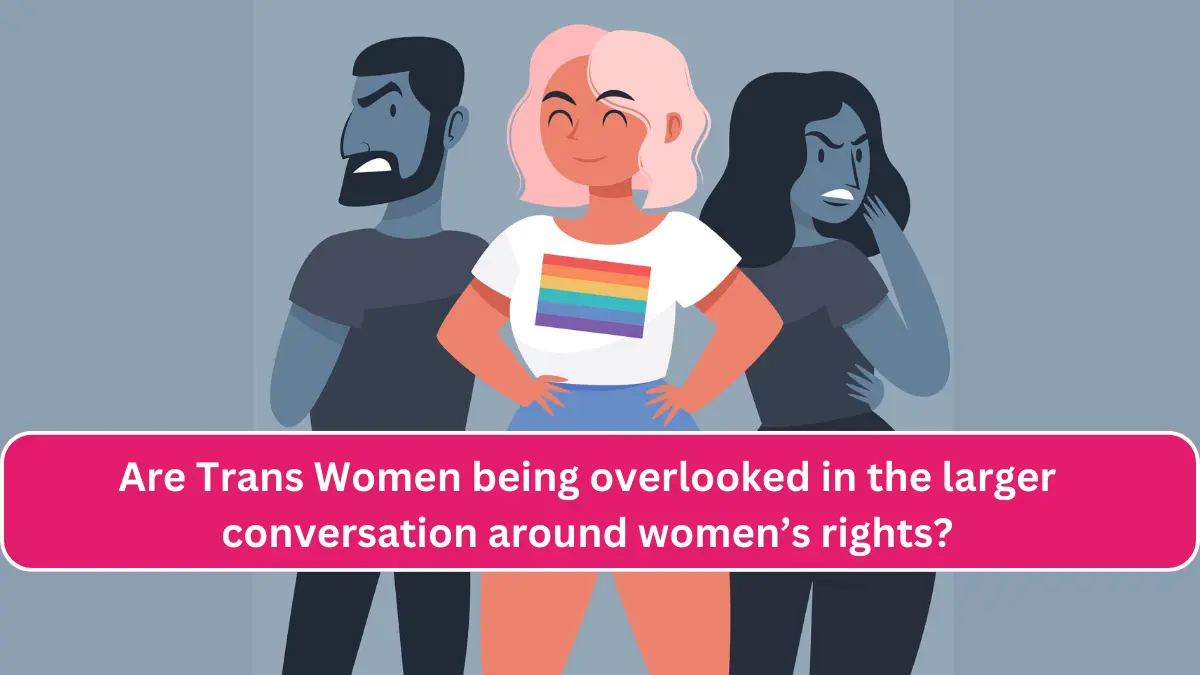International WomenŌĆÖs Day is upon us. At least for one month people sit up and listen to issues like gendered pay disparity in the workplace, the sexist pressure on women to juggle work and motherhood, sexual harassment, womenŌĆÖs lack of presence in STEM, and other such burning issues. However, one important intersection of womanhood is regularly overlooked. The lives and realities of transwomen.
After the NALSA judgement was passed in 2014, which offered citizenship status to transgender persons, and offered them a bouquet of rights, many thought the time of the trans community had finally arrived. However, the ground reality is quite different.
To just exist as a trans person in a heteronormative society, that still largely believes in the age-old gender binary is difficult. However, this difficulty is greatly aggravated by instances of violence that transwomen endure daily. There are many layers to the systemic violence that stands in the way of a transwomanŌĆÖs wellbeing.
The multifaceted violence transwomen face┬Ā
Acts of violence against transwomen are habitually underreported. There have been multiple cases of severe atrocities against transwomen in India just this year. For instance, last month a transwoman was beaten to death by a mob in Hyderabad, on suspicions of being a child kidnapper. In Chennai, a transwoman was tied to a pole and beaten severely by a mob. She too was mistaken for a child kidnapper through a targeted WhatsApp forward, despite being an IT professional.
This stereotypical bias against transwomen is rooted in our history, where eunuchs were categorized under ŌĆ£The Criminal Tribes Act (1871)ŌĆØ as ŌĆśrespectableŌĆÖ or ŌĆśsuspiciousŌĆÖ groups. While the Hijra community in India is not a monolith, there is a tradition within the community to take in children abandoned by their parents and rehabilitate them. But the bigoted remains of a colonial past still haunt transwomen as social media forwards and even claims their lives.
To exist as a transwoman in a public space is therefore an issue of safety. But their ordeal does not stop there. Private spaces are not easy for them to thrive in either. Transwomen are often at the receiving end of sexual, physical and emotional abuse in interpersonal relationships. Given the heteronormative script that our imagination works with, we often do not consider the plight of transwomen while addressing Intimate Partner Violence (IPV).
Last month, a transwoman was thrashed and robbed by their partner in Odisha, after the latter promised to marry her. Studies show that trans people are deeply vulnerable to IPV, yet in India transwomen cannot report these instances. There is no clarity whether transwomen are recognized under the Domestic Violence Act, 2005. Only last year, the Supreme Court decided to review whether transwomen can be considered as ŌĆ£aggrieved personsŌĆØ under the act. However, until the matter comes to court in 2025, transwomen remain deeply unsafe in romantic and/or sexual partnerships.
The intersectional location of transwomen┬Ā
Within these layers of systemic violence transwomen are facing, there are further intersections. In University of Hyderabad, two Dalit transwomen had to face severe harassment when their clothes were burnt in the menŌĆÖs hostel. One of the Dalit transwomen is an elected member of the UniversityŌĆÖs ŌĆśGender Sensitization Committee Against Sexual HarassmentŌĆÖ, yet the authorities refused to provide them with accommodations in the female hostel.
Or consider the case of Manipuri transgender activist Malem Thongam, who has embarked on a fast-unto-death until peace is restored in the state. However, Thongam has been arrested for ŌĆśattempting suicideŌĆÖ and held in judicial custody. While transwomen face regular violence, they become even more exposed to it given the intersections of caste and ethnicity. To that end, the ongoing protest for horizontal reservations within the trans community stands as evidence.
However, the tireless work of advocacy groups is slowly changing the situation. In Delhi, Chief Minister Arvind Kejriwal has announced that the government will offer free transport to transgender individuals on DTC and cluster buses. The Tamil Nadu government is taking steps to provide reservations to transgender individuals in local body elections. Quite recently, the Ministry of Social Justice launched their ŌĆ£Equal Opportunity Policy For Transgender PersonsŌĆØ initiative. The policy highlights the need to respect the gender and pronouns of trans folx and providing infrastructure as gender neutral toilets. Conversely, the policy is strict against bullying, harassment and discrimination based on gender identity and expression. The policy is applicable to all employees of the Ministry.
These policies, benefits and laws can go only so far if the general mindset of the mainstream doesnŌĆÖt change. Media holds a great responsibility in this regard. The coverage of trans issues in media and the portrayal of trans lives in pop culture needs to be done in a humane manner. Last year, Sushmita SenŌĆÖs ŌĆ£TaaliŌĆØ (2023) won accolades for capturing the nuances of a transwomanŌĆÖs lives. The series was widely viewed and applauded. Inspired by the life of transgender activist Shreegauri Sawant, a spearhead in bringing about the NALSA judgement in 2014, the web series detailed the grim truth of being a transwoman in India.
Awareness about the trans issues is a stepping point. It’s time we, as a society, underwent gender sensitivity to unlearn the biases against transwomen. This WomenŌĆÖs Day letŌĆÖs remember that the issues that transwomen face are also a crucial component of womenŌĆÖs rights.
Written By Usri Basistha┬Ā
 Cart is empty
Cart is empty 

